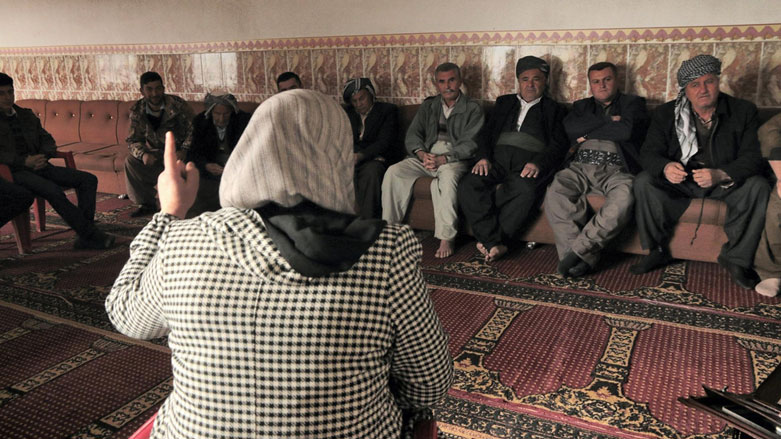FGM eliminated in Kurdistan’s Garmiyan region: Women's rights group
On Thursday, the International Day of Zero Tolerance for Female Genital Mutilation (FGM), a women’s rights group active in the Kurdistan Region has announced that FGM has been eliminated in the Garmiyan Administration.

ERBIL (Kurdistan 24) – On Thursday, the International Day of Zero Tolerance for Female Genital Mutilation (FGM), a women’s rights group active in the Kurdistan Region has announced that FGM has been eliminated in the Garmiyan Administration.
Garmiyan is an unofficial province in the Kurdistan Region that includes the three districts of Kalar, Kifri, and Chamchamal. FGM, however, still remains a serious problem throughout most of the Kurdistan Region and other parts of Iraq.
WADI, the organization campaigning against the practice, announced that after a 15-year campaign, no new cases of FGM were recorded in Garmiyan in the past year.
“This historic moment will be celebrated on February 6, the world-wide day against FGM, in the capital of Garmiyan,” WADI said in a press statement.
“The whole campaign started in 2004 in Garmiyan and mainly because of hard work and awareness-raising, attitudes there changed,” WADI official Thomas von der Osten-Sacken told Kurdistan 24.
However, he added that in some regions near Erbil and Rania there are still FGM cases being recorded. “Although it is declining everywhere, luckily. Including in Halabja. But this relates [the decline] a lot what is done against it.”
From its offices in Sulaimani, workers from WADI have tirelessly worked with residents, authorities, and religious leaders that have been willing to speak to them. They have also made hundreds of trips to rural areas where FGM is most common to speak to villagers and give classes and presentations to educate women and local officials on the grave emotional trauma and serious health risks it poses.
Read More: Activists in the Kurdistan Region continue the fight to eradicate FGM
Over time, this multi-pronged attack has proved to be a strategy that has worked. Aside from the local effects of their constant advocacy, the group’s efforts have also brought much greater international attention to FGM occurring outside of Africa and were crucial to the process that led to the Kurdistan Regional Government (KRG) passing a law in 2012 that banned it.
“So in other regions, it still exists. Much more has to be done, and if work stops in Garmiyan, it could start there again. In Kirkuk and the rest of Iraq it is also a huge problem,” said von der Osten-Sacken.
“There has not been a single day during the last 15 years, when our teams did not visit a village in Garmiyan,” Shokh Mohammed, a team organizer in WADI’s main office in Sulaimani, was quoted as saying in the press statement.
She continued, “Effects of any campaign will only show in the next generation. If you educate women today they may be shocked of what they did to their daughters, but they will have forgotten when their daughters have children.”
According to the United Nations Population Fund (UNFPA), about 10 percent of girls aged under 14 were likely “cut” in 2018, the average age of cutting being five years old.
Some Islamic clerics supported the WADI campaign. “But in fact, I would say 75 percent of them are not happy with it and the government claims it could do a lot, but in fact could do a lot more,” WADI director Thomas von der Osten-Sacken told Kurdistan 24.
But he added that “Kurdistan could be an example for the whole region how to combat this if this task would really be taken seriously by everyone.”
On the International Day of Zero Tolerance for FGM, the UNFPA and UN Women called in a press release on the relevant authorities in Iraq, especially the Kurdistan Region of Iraq, “to work together to end FGM through the implementation of the Female Genital Mutilation (FGM) Communication for Behavioural Impact (COMBI) plan.”
The Family Violence Law, referred to sometimes as “Law Number 8,” went into effect in August 2011 and included several provisions aimed at eradicating FGM, as well as addressing other issues such as domestic violence. Humans rights organizations universally hailed the law’s passage, but have since often complained that the KRG has not adequately enforced it.
As Human Rights Watch found in field research conducted a year after the Family Violence Law was passed, an unfortunate side-effect of criminalizing FGM is that it has caused families and those continuing to practice it, often midwives, to hide it more than they had before. This has made it more difficult to collect reliable data on how pervasive it still really is.
Editing by John J. Catherine